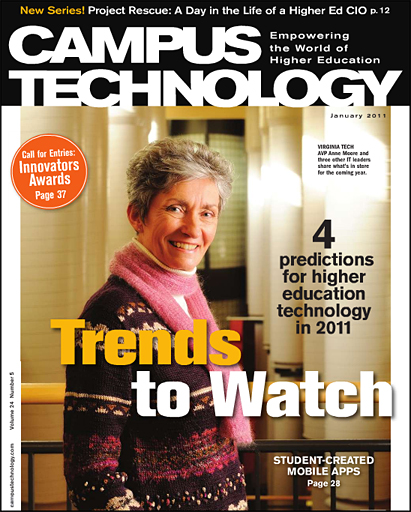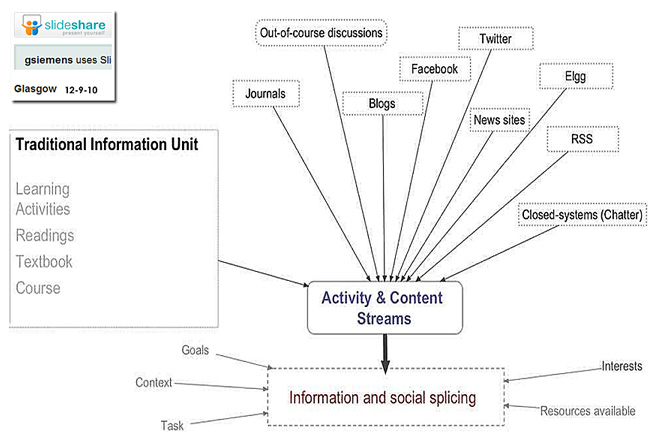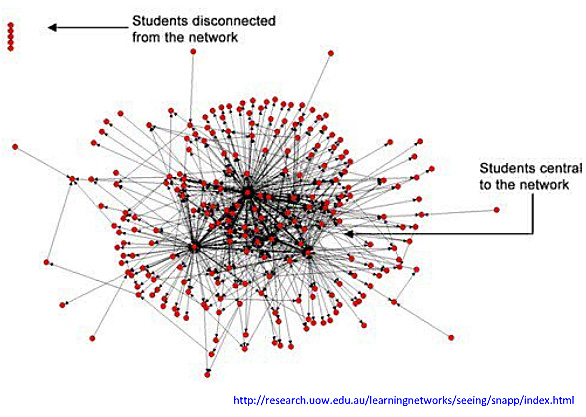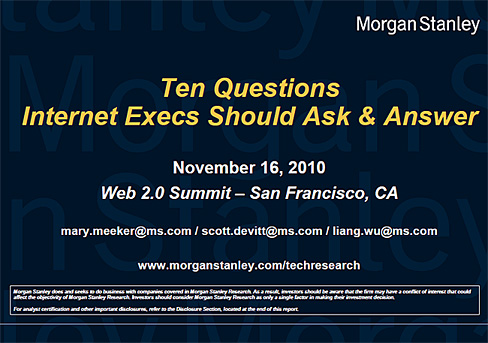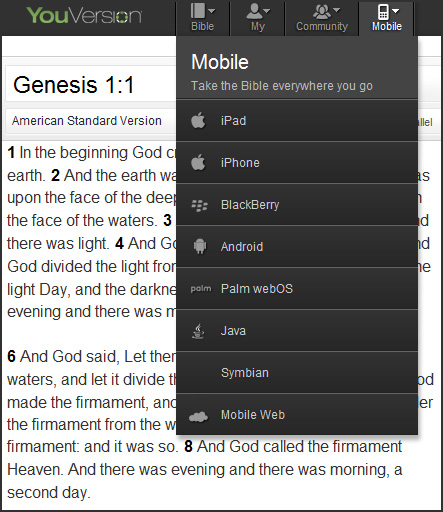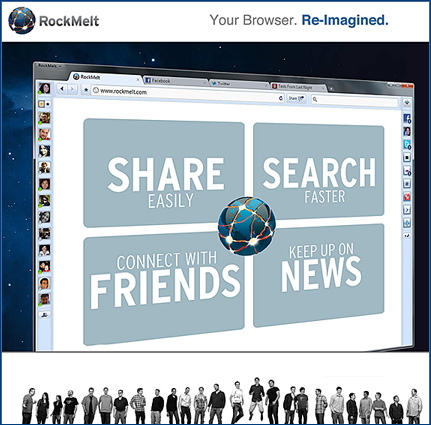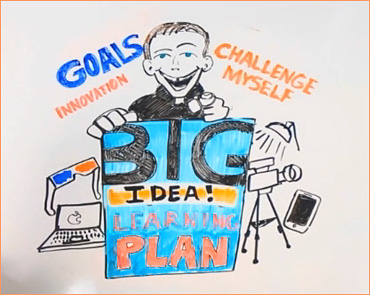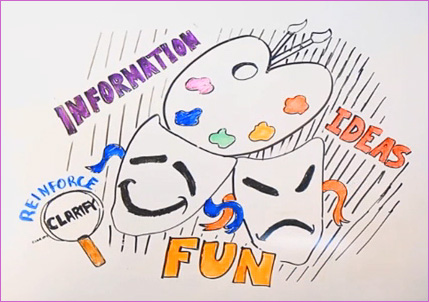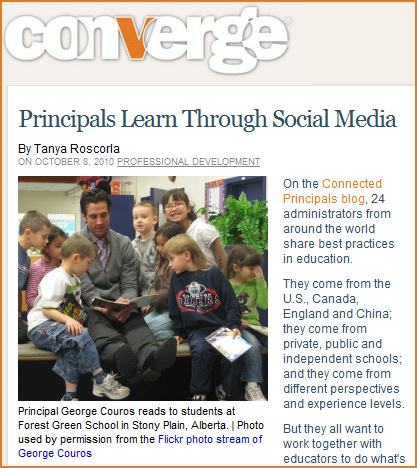Includes the acceleration of learning analytics and learner-generated content, knowledge application supplanting information access, digital textbooks making their move, data-intensive computing challenging IT — as well as predictions concerning faculty development (as even more courses move online), mobile learning, student expectations, open education, collaboration, social media and others.
2011 NMC Symposium on New Media and Learning
March 29, 2011 – March 31, 2011
Online hosted by NMC
The 2011 NMC Symposium on New Media and Learning, the seventeenth in the NMC’s Series of Virtual Symposia, will explore the impact of new media on teaching, learning, research, and creative inquiry, especially in higher education.
The 2011 NMC Symposium on New Media and Learning, the seventeenth in the NMC’s Series of Virtual Symposia, will explore the impact of new media on teaching, learning, research, and creative expression, especially in higher education. New media, for this event, is interpreted broadly as anything from creative uses of digital media and new forms of communication to alternative publishing methods and media-rich tools. The Symposium seeks to explore new media in the context of a current social phenomenon and not simply as a means of content delivery.
Proposals are encouraged on any of the following themes, but this list is not exhaustive and selections will not be limited to these categories:
- digital gaming in education
- digital storytelling practices
- new forms of multimedia production and delivery
- social media, social networking and global connections
- new media and mobile devices
- data visualization
- media-rich communication tools
- new literacies
- any technology or practice that shows promise for engaging students and supporting teaching and learning using new media
What They Know – Mobile — from WSJ
Your apps are watching you — from WSJ
A WSJ investigation finds that many apps on the iPhone and Android are breaching the privacy of smartphone users
Facebook in Privacy Breach — WSJ
Many of the most popular applications, or “apps,” on the social-networking site Facebook Inc. have been transmitting identifying information—in effect, providing access to people’s names and, in some cases, their friends’ names—to dozens of advertising and Internet tracking companies, a Wall Street Journal investigation has found. The issue affects tens of millions of Facebook app users, including people who set their profiles to Facebook’s strictest privacy settings. The practice breaks Facebook’s rules, and renews questions about its ability to keep identifiable information about its users’ activities secure.
Facebook Apps Sending Personal Information to Internet Tracking Companies — from consumeraffairs.com
FarmVille and other popular games collect IDs and sell them, Wall Street Journal reports
The Web’s New Gold Mine: Your Secrets — from WSJ
A Journal investigation finds that one of the fastest-growing businesses on the Internet is the business of spying on consumers. First in a series.
- The study found that the nation’s 50 top websites on average installed 64 pieces of tracking technology onto the computers of visitors, usually with no warning. A dozen sites each installed more than a hundred. The nonprofit Wikipedia installed none.
- Tracking technology is getting smarter and more intrusive. Monitoring used to be limited mainly to “cookie” files that record websites people visit. But the Journal found new tools that scan in real time what people are doing on a Web page, then instantly assess location, income, shopping interests and even medical conditions. Some tools surreptitiously re-spawn themselves even after users try to delete them.
- These profiles of individuals, constantly refreshed, are bought and sold on stock-market-like exchanges that have sprung up in the past 18 months.
Facebook’s Zuckerberg Says The Age of Privacy is Over — from readwriteweb.com
Why Facebook is Wrong: Privacy Is Still Important — from readwriteweb.com
Leaving Facebook — technologyreview.com
Will Diaspora provide a social-networking haven for those fed up with Facebook?
.
Also see:
Obama administration calls for online privacy bill of rights — from cnn.com
Connections, Clouds, Things & Analytics –– from George Siemens
From DSC:
In looking through George’s presentation, the following graphic reminded me of a learning ecosystem. The idea of activity and content streams speaks of constant flow, change, new information. Look are the sources of where learning can come from:
.
As an instructional designer, how do we incorporate all of this?
Finally, one other thought, if we are not connected to a network of bloggers (and have a series of RSS feeds keeping us constantly up-to-date) or have some other means of tapping into these streams of activities and sources of content, we will look like this:
The 2011 NMC Summer Conference includes four themes:
Threads in these themes include, but are not limited to, the following:
- Emerging uses of mobile devices and applications in any context
- Highly innovative, successful applications of learning analytics or visual data analysis
- Uses of augmented reality, geolocation, and gesture-based computing
- Discipline-specific applications for emerging technologies
- Challenges and trends in educational technology
- Projects that employ the Horizon Report or Navigator in any capacity
.
- Challenge-based learning
- Game-based learning
- Digital storytelling as a learning strategy
- Immersive learning environments
- Open content resources and strategies
- New media research and scholarship
- Challenges and trends in new media and learning
.
- Fostering/Supporting/budgeting for innovation
- Supporting new media scholarship
- Collaboration as a strategy
- Learning space design, in all senses of the words
- Use, creation, and management of open content
- Experiment and experience; gallery as lab, lab as gallery
- Challenges and trends related to managing an educational enterprise
.
- Designing for mobile devices in any context
- Social networking — designing, monitoring, maximizing social tools
- Experience design
- Creating augmented reality
- Creating the next generation of electronic books
- Optimizing digital workflows
- Strategies for staying current with new media tools
The YouVersion Bible: 2 years, 10 million downloads, 0 advertising. — from thenextweb.com by Brad McCarty
It isn’t often that we’ll talk about religion, politics or things that can otherwise start arguments that don’t count as fanboyism. However, when a service gains 10 million downloads without ever advertising, that’s a pretty strong social media story in our book.
YouVersion is a simple thing – a bible. It can be downloaded to a number of different platforms, it’s available in a myriad of translations and has a community that surrounds the application and the website. Presently, the app gets downloaded at the rate of over 1 million new users every month and has kept itself in the top 5 download apps for the Reference category of the App Store.
So how does YouVersion manage things? The power of people, it seems. The company credits its success greatly to the social sharing of the YouVersion community…
Network Learning: Working Smarter — by Harold Jarche
We need to re-think workplace learning for a networked society. Our organizational structures are becoming more decentralized, with individual access to almost unlimited information, distributed work teams, and digital media that can be copied and manipulated infinitely. In the interconnected workplace, who we know and how we find information are becoming more important than what we know.
An island no more: A game-changing application suite for LMS — from CampusTechnology.com by Trent Batson
…a “Google Analytics” for the LMS.
…perhaps the most revolutionary aspect of plugjam, allowing both students and teachers to intelligently search open educational resources (OERs) maintained by Merlot and 10 colleges and universities through the new OER Global Consortium inspired and supported by MERLOT, including Johns Hopkins, MIT, Notre Dame, The Open University, Universidad Politecnica de Madrid, Stanford University, Delft University, University of Massachusetts Boston, The University of Tokyo, and Yale University. Other institutions offer additional OERs, such as Carnegie Mellon, Rice, and others.
…essentially allowing faculty and students to create a portal with a live instantiation of the LMS interface on the same page as social software and other functionalities, literally putting your LMS into the social Web.
…
Why is all this important? The campus book library of 10 years ago has changed radically: It is now augmented (and perhaps surpassed) by the library on the Web, more easily searched, portable to any Web site, and potentially a broader-based, more up-to-date set of resources than was ever available before to the campus community. With many more Web academic resources becoming available everyday and the LMS, with plugjam, capable of becoming its own “lending library,” each course can be content-rich beyond imagination.
Top 100 Tools for Learning 2010: Final list, presentation and more — from Jane Knight
Yesterday I finalised the Top 100 Tools for Learning 2010 list. Many thanks to the 545 people who shared their Top 10 Tools for Learning and contributed to the building of the list. Although this list is available online, I also created this presentation which provides the information as a slideset – embedded below.
Jane Hart, a Social Business Consultant, and founder
of the Centre for Learning & Performance Technologies.
About Horizon Project Navigator — from the New Media Consortium (NMC) by Nancy Reeves
The Horizon Project Navigator, currently in development by the New Media Consortium (NMC), will allow users to fully exploit the Horizon Project’s extensive and expanding collection of relevant articles, research, and projects related to emerging technology and its applications worldwide, as well as the NMC’s expert analysis and extensive catalog of sharable rich media assets. Users will be able to manipulate and customize information in real time, contribute new information, add their own commentary and analysis, and rate the quality and usefulness of the ideas, models, and content shared by the community.









